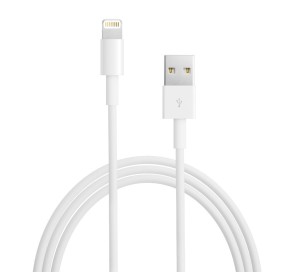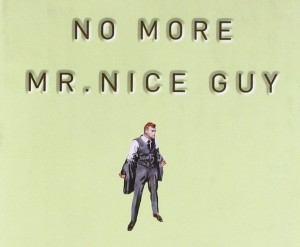Year In Review: 2015
It’s my birthday real soon.
There’s a lot I could say about the past year, and what I’d like to do in this Year In Review is share one theme that impacts everything and then a list of small adjustments that make a huge impact, along with shout outs to the people who hooked me up.
These adjustments are easy to implement, and I believe they follow the 80:20 rule: 20% of decisions account for 80% of the impact.
And before recapping this year … first an unmentioned win from 2014:
Reduce phone notifications as much as possible.
I watched Ryan Seamons of LinkedIn give this talk. (Highly recommend, it’s 14:34.)
Ryan is unmistakably clear: attention is an asset.
And I had cheaply sold my attention to pings that didn’t add value to my life:
- every email arrival
- every Facebook notification
- every Instagram notification
- and more I don’t even remember now
- AND the circle indicators of all the apps
Here’s what my phone does now:
- rings when people call
- buzzes when I get a text/voicemail to my private #
- nothing when I get a text/voicemail at my public #
- nothing when email arrives
- calendar alerts
I get a few more notifications, such as Delta alerts when I’m traveling. These are highly limited in time and tied to when I know I need the info.
Further, I turned off almost all those pesky red “unread” circles.
Those circles say, “You need to open me!” But the truth is, “I will open you when I need to.”
Reclaiming my attention has been extraordinary.
I imagine my resting heart rate dropped a few clicks.
(Free)
Year In Review: 2015
Theme of the year: Priorities.
- Family – dating – marriage
- Health: physical, emotional, psychological, spiritual
- Financial stability
- Physical performance
- Career success
Those are my priorities. God is in them all.
During the year, I’ve aligned my life (time, attention, resources, work, environment) with my priorities by:
- moving out of New York
- withdrawing from a business club
- working more deeply with fewer clients
- drastically cutting travel (Sept 1 and on), including cancelling trip to Australia and not spending the winter in AZ
- putting podcast on temporary hold
- moving to Utah (permanent as of Jan 2016)
- turning down an exciting job offer to be the first Director of Marketing at a company in Manhattan; it would have had me move back to NYC Aug 2016
It’s like I lived as if I were writing my Year In Review every day.
And now … 16 Small Things that Make a Huge Impact:
2-meter Phone Charger via Peter Lombard

I once made the mistake of buying a HALF-meter charging cable. That size is a joke. On a business trip Peter pulled out a 2m cable. I thought it was cheap aftermarket crap. “Nope, this is genuine Apple.” So much distance. So much convenience.
The Jackery via Peter Lombard

This wallet-size portable battery packs a punch. It charges my phone 2.5 times and hasn’t lost its power in the year I’ve owned it. It has an LED flashlight built in. And it’s orange.
($30 on Amazon)
The 95 Whitney by Gregory via Josh Wright

If you wear suits to work this probably isn’t a good plan for your road warrior arsenal; stick with a roller. But if like me you’re typically shod in Rainbows or Sperry’s and sometimes hauling a bike, slinging your clothes on your back is the way to go.
95 means 95 liters and it’s large.
The pack holds my year-round wardrobe and workout gear, sans shoes.
Pro tip: get a plain, massive tote bag (this is the one I got) and slip your pack in when you check it at airports. That’ll save the life of the pack’s straps, buckles and finish.
(The Whitney is out of production, but you can scan Amazon for used deals, or check out Gregory’s new 95-liter pack, the Baltoro. $239-379 on Amazon)
Pro tip part dos: check SierraTradingPost.com, don’t buy it, and wait for them to push discount codes to you via Facebook ads.
Air Bag, Zippsack + Zipptwists by Granite Gear via Josh Wright

Companions to the 95 Whitney, these are like portable drawers. They add no volume and insignificant weight, but do add organization and convenience to the max. How many shirts and pants does one need? Only as many as fit in one sack. I love arriving at my destination, sliding the sacks out and putting them immediately into a drawer: and boom, I’m moved in.
Thanks, Josh. You saved me hours this year.
Hang closet items longest to shortest, left to right by Marie Kondo via Eric Brief

Maybe it’s different in societies that read right to left…
But for this American, life happens left to right. And upward lines inspire positivity. This method handles my hitherto unanswered question: what IS the best way to sort my closet? Every item has a place. Every item has a hanger. Unneeded items are no more. Benefit? Pleasantness and time saved.
(Free, pull yourself together and give that little OCD gremlin a stroke)
Where does this tip come from? A little book that, as the title promises, will change your life: The Life-Changing Magic of Tidying Up.
($9.99 on Amazon)
Intermission from ‘Year in Review: 2015’ to praise …

My friend Jimmy “The Dude” Fahey
… who introduced me to deep-fried pizza on the Venice Beach Boardwalk.
About Jimmy: He’s a legit studio engineer.
We started a podcast production business together too.
These Small Things come from The Dude:
Live Music
It’s good for my soul. Whether I hate the show or love it, I watch people perform. They’re the ones with the guts to get up there. When I shut my phone off and let the music roll, I access a level of chillness that the rest of my ad- and commercial-message-saturated life doesn’t get.
High Drags (ahem, live music)

I praised High Drags a year ago. Still stands. Great songs. Favorite: “New War Games”
(Free on Soundcloud)
Engineering Mindset
We were talking about inbox flow.
“But see that’s flawed thinking. I don’t need that to come to me. When I need it, I’ll find it.”
I was promoting Unroll.me and defending my practice of keeping commercial subscriptions … stuff like deal-alerts from Bonobos.
“Yeah but sometimes an amazing deal comes through…” I protested.
“Doesn’t matter. If you don’t need it, it’s waste. Think like an engineer.“
And just like that I was convinced.
I’ve been eliminating wasted communication and alerts by unsubscribing from everything that is unnecessary, and in the process, steadily taking my attention and inbox real estate back.
Think like an engineer.
When I need something, I will go and get it.
I don’t need unsolicited stuff flowing to me.
(Free)
And the pruning spread …
Drastically Prune Accounts Followed
I’ve unfollowed hundreds if not +1,000 accounts on Facebook, Instagram and Twitter.
I don’t need, I can’t properly process, I won’t really be served by so much information.
Just say ‘No.’
Or better yet say ‘No more.’
(Free)
Minimize In-Between-Time
In NY, people take cabs and the subway. When I lived there, I made use of commuting time like everyone else because my mind wasn’t occupied driving. Texting and driving don’t mix. Subway riding and mobile use do.
But in LA (and elsewhere ex-NY), people drive. And the distances can be long, especially in LA. This creates in Jimmy’s life an abundance of In-Between-Time.
In-Between-Time is getting from waking up to work, and work to working out, and working out to the show — driving, showering, eating, waiting, etc. is all “between” the real stuff of life.
The game of Jimmy’s life is minimizing In-Between-Time.
Again, think like an engineer.
Reduce waste. Reduce In-Between-Time.
Minimize all stuff that isn’t most imporatnt.
(Free)
Stand Up Comedy: Sunday late nights at The Comedy Store and Comedians In Cars Getting Coffee

I so appreciate comedians.
I couldn’t write my Year In Review: 2015 without mentioning them.
How on earth does a stand up comic have a 1-way conversation with a room full of people … for AN HOUR?
Sunday nights at The Comedy Store — not the main room, the small room upstairs at the back that you get to going up a flight of outdoor stairs from the back parking lot (orange arrow) — are where stand ups go to test their material in front of … other stand ups. It is brutal vulnerability and instant feedback to the extreme. I now know because Jimmy took me there. We were probably the only non-comics in the place.
Successful people get rapid feedback from people who are more willing to tell the truth than to be nice (or stroke your ego so you’ll like them). As painful as it is, that’s why the comics show up. To get the truth, the brutal truth. I haven’t yet braved the mic. Don’t know when I will, but I will.
I have tremendous respect for the craft. Yet again, another craft where the path to mastery is clear: test your material, test your material, test your material. For years. And after 10 years and 500 dingy shows, you might then knock it out of the park with a TV audience.
(Free, Sunday nights at The Comedy Store)
Once I left LA, I wanted more comedy. I got into Comedians in Cars Getting Coffee by Jerry Seinfeld and I love it. Two comedians being themselves … looking for, celebrating, ridiculing and exploring what it is to be a human.
I like comedy because successful comedians always add to the conversation and move the action forward. The act dies and they fail if they don’t. I value that. I want to learn the craft.
Episodes are 10-20 minutes. One episode at a time does wonders for the mind and heart. As of now, there are 7 seasons and 48 episodes.
(No longer free at ComediansInCarsGettingCoffee.com … coming soon to Netflix)
Many thanks, Jimmy. You think as a genius does, and my life is better for it. Now back to the Year In Review: 2015.
Removing Gmail from my phone via Eric Sharpe

Here’s the truth about my former email habits on mobile:
- waste time
- use as a crutch from engaging
- use as a distraction/diversion from something else
- mostly scan and worry about how soon I could get to a computer to actually handle the request in the email
- provide pithy responses if I did reply
So basically …
My email responses on mobile were subpar at best and worthless at worst.
Hat tip to Eric for the initial analysis and his willingness to share all this at Camp Good Life Project.
Eric ran a computer repair shop in Savannah, Georgia and had a large team of freelances/contractors/interns handling IT consulting, graphic design, web design and all kinds of tech support for small businesses and entrepreneurs. Then, and even in his role now as Director of Marketing at an IT firm, he gets a lot of emails from people who need support and direction. AND he deleted the Gmail app?
I agreed with his analysis of his personal mobile email use and saw mine was the same.
I got rid of the Gmail app right then. And I moved the native email app to the last screen so I would only access it when I really needed to.
No regrets since.
I’ve trained people in my life to call or text with truly urgent requests. The rest goes to email which I handle when I’m in a real position to handle (i.e. sitting at a desktop with available attention).
The Gmail app allowed me to fill In-Between-Time with worthless busyness.
I’d scan my inbox for emails where I only needed to read the subject, highlight the message and delete it. I felt “productive” … staying “in the loop” and lowering the unread count on my inbox.
But it was a losing battle.
The “productivity” wasn’t central to my priorities. Was ALL unnecessary. Back to think like an engineer — why get emails where I only read the subject? A great signal to unsubscribe.
Having no Gmail app on my iPhone eliminates an avenue for a worthless distraction, making In-Between-Time more intolerable, giving positive pressure to reduce In-Between-Time and maximize Life Time.
Just delete it.
And then hide your native inbox app.
And turn off the display of unread emails.
And write about it in your next Year In Review.
(Free)
Swearing via myself
…under my breath that is. And sparingly.
In a research study, 71 undergrads in the UK were asked:
“to submerge their hands in freezing water for as long as they could bear it. One group was asked to repeat a swear word of their choice — one they might use if they banged their head accidentally, for instance — while their hands were in the water. The other group was asked to repeat a control word they might use to describe a table. Then, both groups repeated the task using the word they hadn’t previously tried. The researchers found that 73% of the participants kept their hands under water longer while swearing … lasting 31 seconds longer in the cold hand plunge” (TIME).
I’m NOT saying swear AT people.
What I’m saying is I think allowing the experience of anger and frustration to get voiced and released in a word is a better option than holding it in, unexpressed at best and suppressed at worst.
As I “let it go, let it goooo,” I’m more level headed when in contact with others and in situations that are stressful. In those moments, I manage only the stress of the situation and not the stress of my whole life because I already let the rest of it out.
Spare use is key to the pain-limiting effects of swearing.
More from TIME:
“Interestingly, however, the more frequently participants reported swearing during the course of their daily lives, the less effective cursing was at killing their pain and the shorter their endurance time in the cold water test.”
May not work for everyone.
Has been healthy for me.
(Free, more info here)
LDS Scripture Citation Index app via Josh Guest

(From swearing to studying the word of God … an unplanned juxtaposition.)
There’s no excuse anymore to begin your Sunday School comment by saying (or to tolerate others doing so), “I’m not sure who said it, but I remember reading a talk …”
Just. Look. It. Up.
The standard Gospel Library app has loads and then the Citation Index has tons more and makes validating and finding useful commentary very easy. It includes:
- The Scriptures
- All LDS General Conference talks from 1942 and on (I just dropped the f-bomb to myself as I kept typing 1042 on my phone instead of 1942)
- The Journal of Discourses
- Topical Index to the Journal of Discourses
- Scriptural Teachings of the Prophet Joseph Smith
How the Citation Index app works:
Find the scripture you are reading/studying/discussing, and click on it in the app and BAM you get a list of EVERY instance that scripture got cited in the aforementioned sources.
It’s bomb.
Keep it open in Sunday School this week. My experience is 1000x when I use it.
(Free, on iTunes)
No More Mr. Nice Guy by Dr. Robert Glover via Nate Bagley

(Specifically: eliminating covert contracts)
Eliminating covert contracts has relieved a lot of relationship tension and makes it easier to accomplish what I want.
Allow me to explain…
Growing up in a Christian home I learned The Golden Rule: “Do unto others as you would have them do unto you.” I can still see my mother’s handwriting in Sharpie pen, having penned those words with their Biblical citation on a piece of shiny gold cardstock that ran the length of my family’s fridge, held in place with magnets at exactly my toddler eye level. It’s a fine phrase. And I agree with the spirit of it.
There’s an upgrade to The Golden Rule:
…do until others as they wish to be done unto.
(This variation eliminates assumptions and provokes conversation to find out what people care about … topics for another time.) The limitations of a not-yet-fully-developed child’s mind (we’ll take mine as an example) can produce a perversion of this principle:
I am to do unto others as I would have them do unto me. OK, if that’s the case … THEN it follows when I want something ‘done unto me,’ I should give/do/act that way toward others so I get it in return.
In time, two addenda developed in my young brain:
…doing unto others what I want done unto me IS how to get what I want.
And later, a further perversion of The Rule:
…AND it’s better to do that than to ask for what I want.
This misinterpretation of The Golden Rule and my misguided accompanying strategy for getting what I want are common among so-called Nice Guys in Dr. Glover’s paradigm. Read the book. I’ve been a “Nice Guy.” And there are not only limitations to being one, but unhealthy consequences to boot.
Back to covert contracts. Almost there …
From my misinterpretation and misguided strategy, I developed strategies:
- to get attention, give attention rather than ask for attention
- to receive service, serve instead of requesting service
- to get support,
falsely or disingenuouslybe supportive instead of asking for support - to get gifts, give gifts to avoid asking directly for gifts
And so on. Giving attention, serving, being supportive and giving gifts CAN all be great … IF done agenda-free and without attachment to reciprocity.
Doing those “good” things as a covert strategy to get what I wanted created problems, didn’t consistently work, and when it did, ultimately was unsatisfying.
If the thought process of a covered contract were spoken out loud, it would go something like this:
I’ll serve you … but I’m serving with a contractual expectation that you’ll serve me in return. I’m not even going to tell you I expect something, which is why this is a covert contract. And by the way, if you don’t eventually serve me, I’ll throw this back in your face.
Imagine being able to read someone’s mind and hear those words explain why they are being kind to you.
What would you think of that? What would you do?
Back to The Golden Rule…
I’m no moralist but I’m pretty sure Jesus didn’t give The Golden Rule with the preface, “here’s a pro tip on manipulating others to get what you want.” The healthiest way I’ve learned to get what you want is to be upfront and ask. Then work hard to get it or cause it to come to fruition. Asking is revealing. Revealing is vulnerable. So that’s what I do. I ask. Serving, giving, helping and encouraging with zero expectation of a return is awesome.
If you’ve interacted with me in the past year and knew me further back from that, maybe you’ve had the thought, “Nat doesn’t seem as cheery and nice as he used to…”
Well.
A lot of my nice-ness was a front.
I’m working on it. Stay tuned for life impact. So far, the impact is the satisfaction of a corrected and healthy relationship with myself. A foundation of that thing we call Integrity. (Free + your humility) By the way, this scratches the surface of what I am getting out of the book. I listened to it a second time in December. And I will again and again. ($9.99 on Amazon) Nate, thanks dawg, for the recommendation. Learn more good stuff from Nate inside Love School.
“Tomorrow!” via Cherie Romney
Replay this familiar scenario …
You’re at a social event. There are many new faces. You’ve arrived with excitement and anxiety, and the intention to meet someone new.
Throughout the event, you get introduced. You introduce yourself. You take in the faces. You evaluate who is who.
You wonder if you’ll click with anyone at all, and perhaps someone amazing.
And then you do.
You chat and talk and trade laughs and jump from topic to topic like familiar friends. It seems the planets aligned and every good thing that’s ever happened is happening right now.
“Wow! I’m SO glad I showed up,” you think.
The fun continues.
Then you notice the event winding down. There’s now a deadline. You sense the connection has run its course for the first encounter, but not to worry … you’ll connect again.
“Let’s get together!” you say, hoping your excitement is reciprocated.
“I’d like that!”
It was!
You continue…
“When works for you?”
“Ummmmm. Hold on, let me check my schedule … “
S/he pulls out his/her phone.
S/he reads an unread text … and replies.
S/he scans for the calendar app, gets a ping for a new email … and opens it.
Quick glance.
Now the calendar …
“Hang on, sorry, just checking something…” s/he says.
You can feel it.
The energy fading. The moment losing its luster.
“What’s happening?!” you think. “Such good convo for so long. I’m sure it was good for him/her too … now why such a shift as soon as we bust out our phones? Maybe s/he doesn’t really want to meet again.”
You tune back in.
S/he speaks.
“Ok ok ok. Wow. This week is bad. I’m traveling next week, then work is nuts … but I’m totally open the weekend after that.”
Back in your thoughts: “IN FOUR WEEKS?”
End of the drama.
Here’s the thing. Not every connection is important. But some are.
At the moment of planning the next rendezvous with a new acquaintance, an important something gets communicated in the words you both choose.
What gets communicated is one of two things:
You are important.
OR
My existing life is more important than you.
I used to say that very thing: “Let me check my schedule…”
And I did it ALL the time.
I had no idea what was carried in my words.
In saying, “Let me check my schedule,” what’s carried, intentionally or not, is the message: “My present life is more important than you. Let me see if I can fit you in.”
Dieter Uchtdorf threw down on this in 2012:
We even wear our busyness as a badge of honor, as though being busy, by itself, was an accomplishment or sign of a superior life.
Listen, for some connections and relationships this is fine to say, “Let me check my schedule.” Because some connections ARE less important than your overall existing life.
In the case of business, that might be “Hey, you are the exact supplier we want to work with, we’re on track to need your services in Q4. I’ll call you in August to set up an order.”
But when we’re talking about dating and major partnerships…
Expressing priority in word and deed is huge.
And so now I say (only if I AM interested of course):
“How about tomorrow?!”
EVEN IF I’m getting on a plane tomorrow morning and I KNOW that in the moment … I still say “how about tomorrow?!”
Think about it: if you also knew I was getting on a plane tomorrow and you really valued our connection, wouldn’t you like hearing the suggestion that we meet tomorrow anyway?
Saying so signals, “YOU, this … this new connection … this is priority right now.” And communicating priority status first is more important than landing on workable logistics, which can be handled second or third or at any later time.
Next time you’re in the beginning of something important, try it out: “How about tomorrow?!” Or even better, “What are you doing right now?” Let that land, then sort out the details.
(Free)
I could write an ENTIRE Year In Review with nothing but diamond tips from Cherie. More here.
So that’s it … my Year In Review: 2015!
A Toast to 2016
Having spent 2015 aligning time, attention, resources, work and environment toward priorities, my toast for 2016 is…
By continual alignment, the promise of fulfillment.
To your health, happiness and success,

P.S. Since you’re reading this you made it all the way thru a super long Year In Review, and I think that means you found something valuable, entertaining, useful or fun. I’d be so appreciative of you sharing that … in a comment, with a friend, by email or around on social media.

